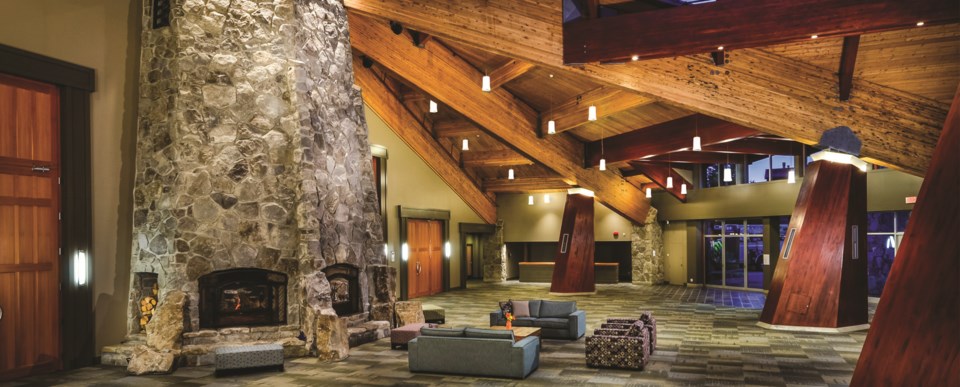The Tourism Industry Association of BC (TIABC) is calling on the B.C. government to adopt a proposed $680-million COVID-19 recovery package, without which the province’s tourism and hospitality sectors could face economic ruin, said the organization’s chair.
“If we don’t do these things, then we have serious risk,” said Vivek Sharma. “We are at the end of the runway. We’re not coming to the end, we are at the end of the runway. We are hopeful that through this support, we will get to the other side.”
The stimulus proposal, which was presented to provincial officials last week, calls on Victoria to allocate $680 million from the $1.5 billion already committed to COVID-19 recovery as an initial investment to “help mitigate the unprecedented impacts” of the pandemic on B.C.’s visitor economy and workforce, according to a release.
The proposal breaks the funds into three streams, the bulk of which—$475 million—is recommended for a working capital recovery grant that would help maintain solvency for businesses that have prospects to return to profitability within the next 18 or so months. This could include low- or no-interest loans with an extended payback period.
“The biggest challenge that is being faced within the industry is liquidity, the fixed costs that are needed to happen on a day-to-day basis,” Sharma explained. “Most of the federal grants or even the provincial ones haven’t been able to address that.”
Another $190 million would go towards helping businesses adapt their operations to newly mandated health and safety protocols, as well as to develop new ways of delivering tourism experiences that would “augment and accelerate” recovery.
“There are some immediate criteria where we know that businesses have had to reduce capacity due to greater physical distancing and increased sanitation protocols, but over and above that, today we are not able to host large events, we’re not able to host large conferences,” said Tourism Whistler (TW) president Barrett Fisher, who also sits on the TIABC board.
Citing the TW-operated Whistler Conference Centre as an example, Fisher added that the destination marketer is already exploring different kinds of events it could host at the village facility.
“Looking forward, we might look at adapting that business model to host smaller educational groups of less than 50, or we might look at creating exhibits that are one way, or we could host guest speakers to smaller groups,” she noted. “It’s really a combination of looking at how businesses adapt in the short term to support safety, but then how might they evolve their business models to find new revenue sources.”
The third piece of TIABC’s proposed package asks for $15 million to be earmarked for the development of more resilient, B.C.-focused tourism supply chains. The goal would be to support tourism-adjacent subsectors, such as accommodation, transportation, food services and retail, and forge new connections with B.C. suppliers as a way to improve the industry’s resilience post-pandemic.
“When we talk about a $20-billion industry … the industry doesn’t survive in a vacuum,” Sharma said. “You talk about tour bus companies, you talk about the cruise sector, you talk about excursions, angling guides, hunting guides, and then all of these are supported by their local supply chain. They’re supported by their local vendors, so this has been devastating all across, but the epicentre has obviously been the tourism industry.”
Unsurprisingly, the outlook for B.C.’s tourism industry appears bleak, at best. More than 100,000 full- and part-time tourism and hospitality jobs have been temporarily or permanently lost during the pandemic, with another 120,000 job losses predicted by the end of the year. Destination BC, meanwhile, is projecting a 69-per-cent decline in tourism revenue from $20.4 billion in 2018 (the most recent data available) to $6.7 billion in 2020.
In Whistler, at least, there are positive signs of recovery. Fisher said room-night occupancy on peak weekends this summer are now hovering around the 70-per-cent mark, while midweek continues to be an uphill climb, at about 30 per cent.
“Ideally, we would encourage people to think of shifting their patterns so we can ensure the weekends do not get too busy. It’s really important that we maintain social distance in the village and in the parks and we’re able to move people around the resort and spread people out,” she said.
Fisher added that TW has had to rethink its emphasis on early-bird bookings, as visitors want more flexibility given the uncertainty around a possible second wave of the virus. Pre-COVID, TW was considering launching a spring book-by campaign, particularly for the Australian market, but moved that early-bird date to Sept. 7 after the pandemic hit to better align with Whistler Blackcomb’s pass purchase schedule. She noted that TW has implemented a flexible cancellation policy that will include a 100-per-cent refund in the event of another COVID-caused shutdown.
Although acknowledging Whistler has never quite faced a challenge like the pandemic before, Fisher is reassured by the resiliency of a community that has had to weather major economic downturns in the past.
“We have gone through ups and downs before, whether it was 9-11 or the global recession of 2008,” she said. “This is a very challenging time but it does allow us the opportunity to really reset and think about what lessons we can take from this downtime and how to come back stronger as a community and as a destination.”




